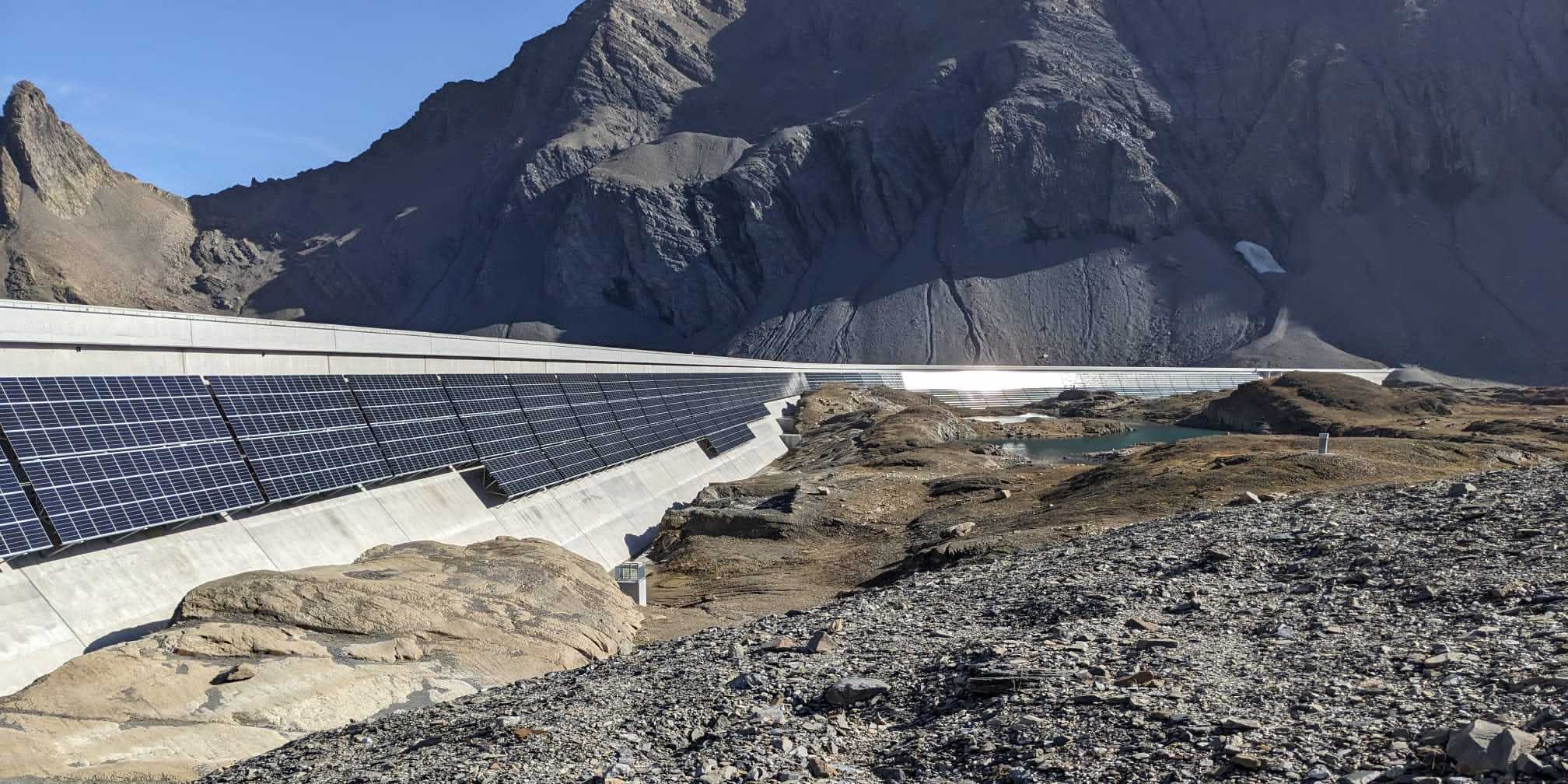
New paper on the economics of alpine solar PV in Switzerland
Improving the economic viability of alpine solar PV in Switzerland requires robust energy policies.
Solar photovoltaic (PV) plays an essential role in decarbonization, but faces challenges in regions with seasonal climates, where power generation declines in the winter, requiring additional back-up capacity or imports. For alpine countries such as Switzerland, installing PV plants in the mountains could address this challenge by increasing PV generation in winter, when more sunlight reaches higher altitudes.
A new external page research paper led by Mak Đukan, Senior Researcher at CFP, examines the financial viability of such installations using Switzerland and its support policies as a case study. Using interviews and financial modeling, the paper assesses costs, business models, and profitability in 6561 scenarios with varying investment conditions. The results show that ground-mounted PV systems have investment costs between 2231 EUR/kW and 4182 EUR/kW and generation costs between 97 and 162 EUR/MWh. The prevailing business models in Switzerland favor utilities with a customer base, achieving a median equity IRR of 8.6%.
The paper makes two main recommendations. First, ground-mounted projects appear to be the most profitable among the various mountain PV configurations, such as wall-mounted and floating projects. Second, the Swiss government subsidy of up to 60% of investment costs is critical to project profitability.
The paper is published in Applied Energy and co-authored by David Gut, external page Anurag Gumber, and Bjarne Steffen, head of CFP.